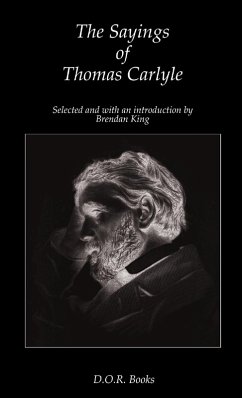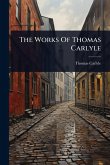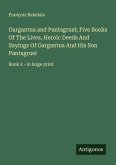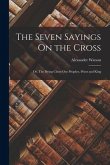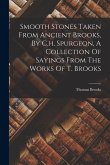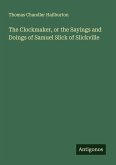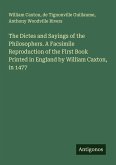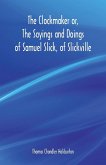During his lifetime Thomas Carlyle was regarded as a plain-speaking, if somewhat irascible, prophet; a larger-than-life figure whose fame and influence rivalled even that of Lord Byron's. But if Carlyle's reputation as a prophet and as an historian steadily declined in the years that followed his death, his bon mots remain as fresh, entertaining, and as scathing as ever. His sharp tongue (which was matched only by that of his wife's), was unleashed on anyone, friend or foe, who aroused his displeasure, and upset as many of his more mealy-mouthed Victorian contemporaries as his published work made him admirers. The Sayings of Thomas Carlyle sees the 'Sage of Chelsea' in full flight, and his pungent reflections on politics, life, and those around him, show that while political and economic theories come and go, simple spleen can stand the test of time. Selected and with an introduction by Brendan King
Bitte wählen Sie Ihr Anliegen aus.
Rechnungen
Retourenschein anfordern
Bestellstatus
Storno

